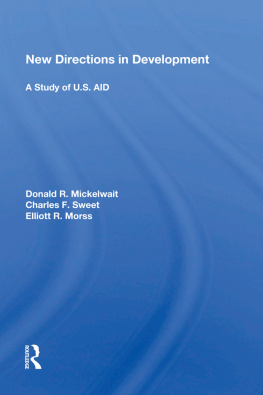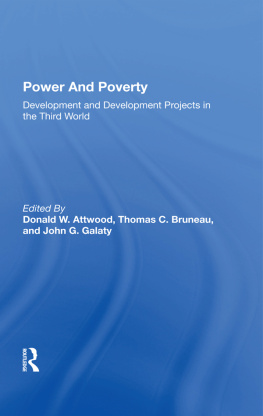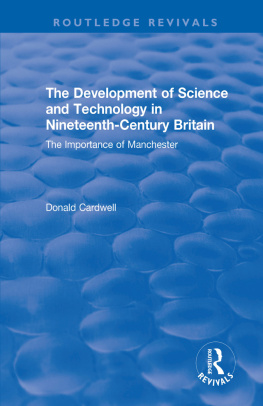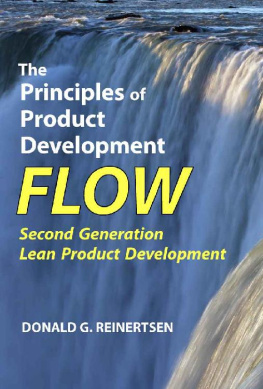Donald R Mickelwait - New Directions in Development: A Study of U.S. Aid
Here you can read online Donald R Mickelwait - New Directions in Development: A Study of U.S. Aid full text of the book (entire story) in english for free. Download pdf and epub, get meaning, cover and reviews about this ebook. year: 2019, publisher: Routledge, genre: Politics. Description of the work, (preface) as well as reviews are available. Best literature library LitArk.com created for fans of good reading and offers a wide selection of genres:
Romance novel
Science fiction
Adventure
Detective
Science
History
Home and family
Prose
Art
Politics
Computer
Non-fiction
Religion
Business
Children
Humor
Choose a favorite category and find really read worthwhile books. Enjoy immersion in the world of imagination, feel the emotions of the characters or learn something new for yourself, make an fascinating discovery.
- Book:New Directions in Development: A Study of U.S. Aid
- Author:
- Publisher:Routledge
- Genre:
- Year:2019
- Rating:3 / 5
- Favourites:Add to favourites
- Your mark:
- 60
- 1
- 2
- 3
- 4
- 5
New Directions in Development: A Study of U.S. Aid: summary, description and annotation
We offer to read an annotation, description, summary or preface (depends on what the author of the book "New Directions in Development: A Study of U.S. Aid" wrote himself). If you haven't found the necessary information about the book — write in the comments, we will try to find it.
New Directions in Development: A Study of U.S. Aid — read online for free the complete book (whole text) full work
Below is the text of the book, divided by pages. System saving the place of the last page read, allows you to conveniently read the book "New Directions in Development: A Study of U.S. Aid" online for free, without having to search again every time where you left off. Put a bookmark, and you can go to the page where you finished reading at any time.
Font size:
Interval:
Bookmark:
and Elliott R. Morss

52 Vanderbilt Avenue, New York, NY 10017
2 Park Square, Milton Park, Abingdon, Oxon OX14 4RN
Product or corporate names may be trademarks or registered trademarks, and are used only for identification and explanation without intent to infringe.
- SECTION I
TWELVE DEVELOPMENT PROJECTS: DESIGN, APPROVAL, AND IMPLEMENTATION- Chapter 1
THE PROJECTS, THEIR SETTING, AND DAI INVOLVEMENT - Chapter 2
THE PROCESS OF PROJECT DESIGN - Chapter 3
THE REVIEW/APPROVAL PROCESS - Chapter 4
ORGANIZATION AND IMPLEMENTATION - Chapter 5
SYNTHESIS AND ANALYSIS
- Chapter 1
- SECTION II
REFLECTIONS ON THE PROCESS APPROACH TO PROJECT DEVELOPMENT- Chapter 6
PROJECT DESIGN ISSUES - Chapter 7
THE ROLE OF EXPERIMENTATION IN DEVELOPMENT PROJECTS - Chapter 8
REFLECTIONS ON PROJECT ORGANIZATION AND IMPLEMENTATION - Chapter 9
REFLECTIONS ON THE REVIEW/APPROVAL PROCESS
- Chapter 6
- SECTION III
PRINCIPAL CONCLUSIONS AND RECOMMENDATIONS- Chapter 10
PRINCIPAL CONCLUSIONS AND RECOMMENDATIONS
- Chapter 10
- ANNEX A
LEGISLATIVE HISTORY OF SECTION 611(a) (1) OF THE FOREIGN ASSISTANCE ACT - ANNEX B
DAI ACTIVITIES IN AGRICULTURE AND RURAL DEVELOPMENT
- SECTION I
TWELVE DEVELOPMENT PROJECTS: DESIGN, APPROVAL, AND IMPLEMENTATION- Chapter 1
THE PROJECTS, THEIR SETTING, AND DAI INVOLVEMENT - Chapter 2
THE PROCESS OF PROJECT DESIGN - Chapter 3
THE REVIEW/APPROVAL PROCESS - Chapter 4
ORGANIZATION AND IMPLEMENTATION - Chapter 5
SYNTHESIS AND ANALYSIS
- Chapter 1
- SECTION II
REFLECTIONS ON THE PROCESS APPROACH TO PROJECT DEVELOPMENT- Chapter 6
PROJECT DESIGN ISSUES - Chapter 7
THE ROLE OF EXPERIMENTATION IN DEVELOPMENT PROJECTS - Chapter 8
REFLECTIONS ON PROJECT ORGANIZATION AND IMPLEMENTATION - Chapter 9
REFLECTIONS ON THE REVIEW/APPROVAL PROCESS
- Chapter 6
- SECTION III
PRINCIPAL CONCLUSIONS AND RECOMMENDATIONS- Chapter 10
PRINCIPAL CONCLUSIONS AND RECOMMENDATIONS
- Chapter 10
- ii
- iii
- xxi
| Table |
| Figure |
Font size:
Interval:
Bookmark:
Similar books «New Directions in Development: A Study of U.S. Aid»
Look at similar books to New Directions in Development: A Study of U.S. Aid. We have selected literature similar in name and meaning in the hope of providing readers with more options to find new, interesting, not yet read works.
Discussion, reviews of the book New Directions in Development: A Study of U.S. Aid and just readers' own opinions. Leave your comments, write what you think about the work, its meaning or the main characters. Specify what exactly you liked and what you didn't like, and why you think so.











